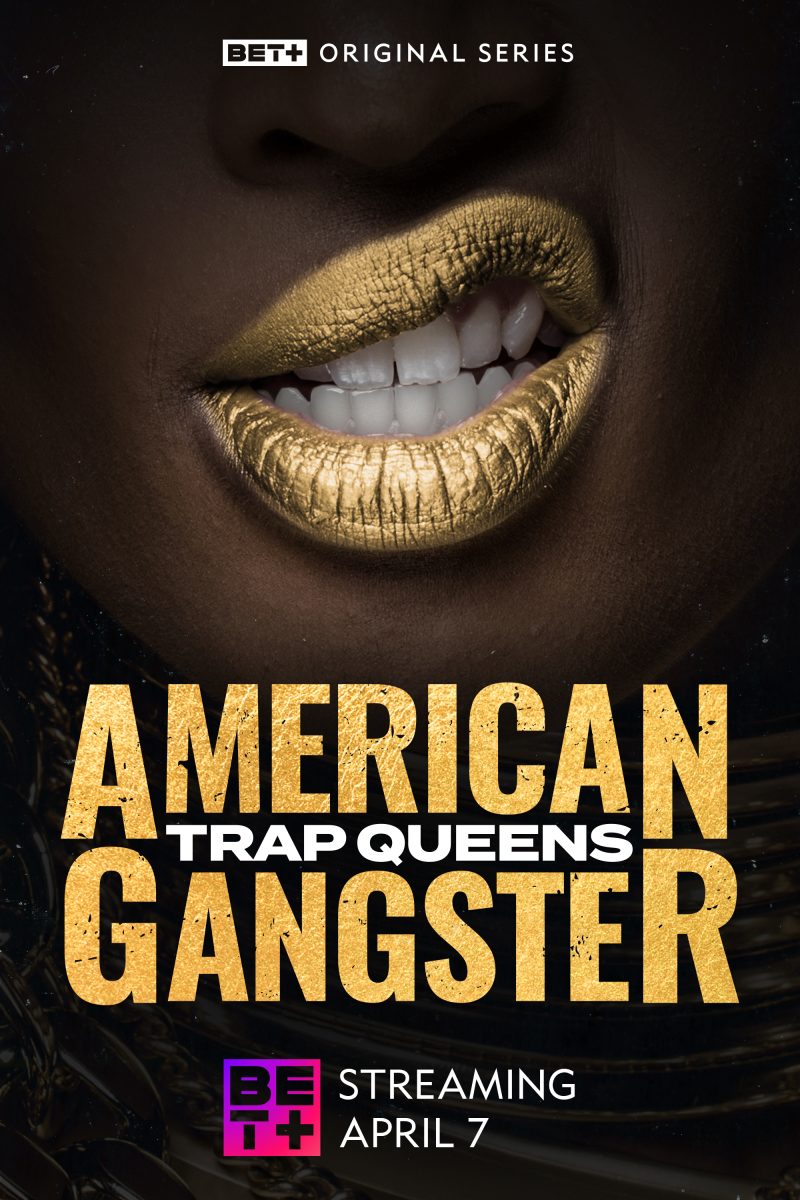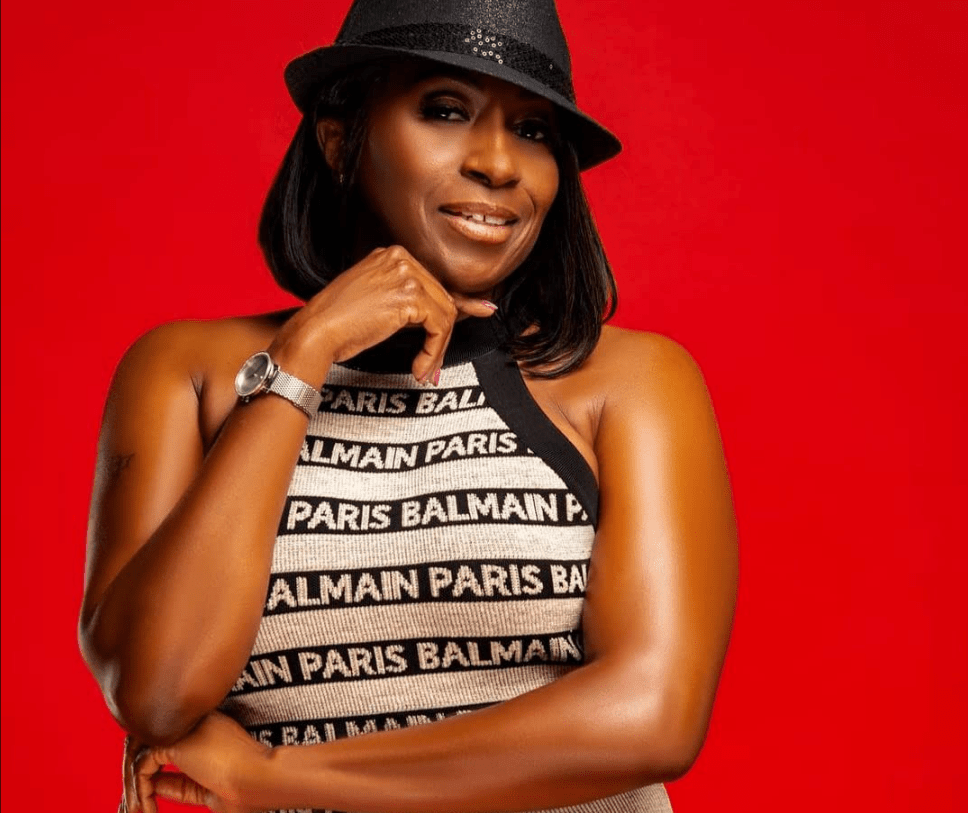
Source: Courtesy of Beck Media / Beck Media
In the late 1980s and 90s, Tonia ‘Ms. Tee’ Taylor reigned supreme in the streets of Harlem, New York as one of the most infamous drug dealers in crime history, selling everything from crack to heroin. The notorious crime boss helped to run and scale successful drug operations alongside other well-respected dealers at the top of the game and she was calling the shots from a young age.
At just 16-years-old, Taylor sold angel dust out of her Louis Vuitton purse on 123rd Street and 7th Avenue. By age 20, Taylor was running a full-on drug organization. Ultimately, the allure of the street life comes at a great price. As the bustling street dealer climbed the ranks of the drug world, she lost close friends and family along the way and one deal almost put the hustler at risk of losing her own life.
Taylor detailed the ups and downs of her astonishing street career in her best-selling memoir “Harlem Heroin(e)” and in her documentary “Ms. Tee” which has garnered over 1 million views on YouTube. More recently, the reformed street boss appeared on this season of VH1’s popular crime series American Gangster: Trap Queens where she gave viewers an inside look of her journey from dealing on the fast-paced streets of Harlem to now, working with inner-city youth and adults as a mentor and outreach counselor.
Ms. Tee has lived one crazy life and she’s not afraid to speak her truth. The former trap queen sat down with MADAMENOIRE to talk about her crime-filled past, her humble family beginnings and how she’s helping the next generation steer away from the temptation of the street life.
MN: We just had a chance to watch your American Gangster: Trap Queens episode and you have one heck of a story! It’s amazing you never served prison time for drug trafficking, even at the height of your career in the 90s. What do you think was your saving grace?
Ms. Tee: I had a praying mother. I don’t know, that’s all I can chop it up to. I kept my circle really small and close. Some of my people have been around me all my life. Some didn’t even know what I was doing.
From the outside looking in, many people associate the drug dealer life with someone who comes from a background of hardship. But you actually grew up in a really loving household with both of your parents. Can you tell us a bit more about your family dynamic growing up?
That’s one of the messages I wanted people to get out of my story. My mother was a sweetheart but of course, my father was a strict Jamaican, very disciplined. Respect and education was big in my house. You know, I had to grow up saying ‘Yes, mommy—no, mommy. Yes, daddy—no, daddy.’ That’s how I had to address my parents. That message was something I wanted to get out to parents because I have parents that reach out to me all the time and say ‘Oh, my God, you know, I make my kids watch your documentary on YouTube as a deterrent.’ Parents always say, ‘Well, what went wrong? What did I do wrong?’ And sometimes you didn’t do anything wrong. Like my parents did absolutely nothing. Back then, the allure of the street life and me just loving money and wanting more and more. That is what I gravitated to. But I will say this. As long as you instill goodness, good ethics, and morals into your kids, we never forget. We come back to it. And that’s the important part as long as you do that. And if you don’t do that, then you have to ask yourself, Okay, where did I go wrong?
Your dad was a busy entrepreneur and it seems like he inherently passed down some of that business acumen to you. Coming into the drug game in your early twenties, did it take you a while to establish credibility among some of the seasoned vets out there on the Harlem streets?
To be honest with you, I never really ran into a challenge and I never really had to go up against a street boss because I’ve always had strong men around me. I was always the one that could make a phone call and stop everything. But when I took over for Ace, the challenge there was, ‘Oh, now I got a female coming in asking me for money?’ like Ace is gone. But you’re not going to disrespect me just because he’s not here. You’re not going to stop paying me just because he’s not here. My approach sometimes was tough for me to be young and 21. But at the end of the day, I stood my ground and some of them became real, real cool with me. At the end of the day, it’s still my money. It’s still our money. You know, a debt is always old, unless I forgive you.

Source: Courtesy of Beck Media / Beck Media
At one point, it was really devasting to see how the repercussions of the street life began to impact you. You lost so many of your friends because of deals gone wrong and you came close to losing your life after getting caught in the line of fire. What made you always come back to the streets?
I guess sometimes we go back to what we know, especially if it’s easy. Even though I may have gotten stuck up and robbed and shot, it was something that I knew. It was very familiar. Me getting shot didn’t even do it. But when I lost my brother, that is what did it for me.
You talked a little bit about the social implication of selling drugs, especially during the crack epidemic. When you got out of the game, did you feel responsible for some of the devastation seen in the community?
At the time, crack kind of just swept through, and we were selling and the money was coming in so fast. At that moment, we didn’t know the devastation because we’ve seen cocaine, we’ve seen heroin, but crack was different. It definitely hit different and we were like, wow, what’s in this stuff? I saw bosses start to get high because they were not prepared for the devastation that crack caused.
After losing my brother, I moved down south and I definitely reflected on a lot of things. I came to the realization that I was complicit in what was going on out there. I still see some people that I probably either directly or indirectly sold to and it’s been, what, 30 years or more. I know heroin addicts that said they would never smoke crack. That’s how harsh that drug is and hard to get off. I see people who I remember starting back then and now, they still can’t get that monkey off their back. So yeah, I definitely realized my part. I definitely asked for forgiveness and I do my part to give back.
Tell us more about your community outreach work? How is it going now?
It’s been going great! I’ve been doing it for eight and a half years now. I’ve actually worked with a lot of veterans and I’m helping to house homeless veterans. That’s very fulfilling. I’ve worked with the mentally ill who are high functioning and can live independently. Just helping them stay focused and making sure they maintain their relationships with their doctors and stuff like that. Working with the youth at the lockdown facilities has been fulfilling too because their minds are still impressionable. So you got to kind of catch them where they are at. Sometimes I walk into the center and they don’t know who I am but once I flip on my documentary, they’re like ‘whoa, you did that?’ or ‘you got into that?’ I try to make them understand that we only get one life. There are no do-overs. So either you want to go back out there and do the right thing, or you could be gone and I’m just one of the lucky ones who’ve been blessed to come and stand in front of them and say, Listen, you know, you still got time. You still got a chance to do it right.
RELATED CONTENT: ‘I Got My A** Together’: Jada Pinkett Smith Reflects On Past Drug Addiction


0 Commentaires